The Puppy Dog Inside All of Us
We have this sweet pooch, named Ava. Ava’s a mix between a black lab and a border collie. As a result, she has the body and build of a lab and the pointy nose and ears of a border collie. She’s a really good dog, and she’s definitely my dog. Each day she joins me in my office or sits in the hallway and every time I walk by, her tail wags as she hopes for a quick pat on the belly or a quick scratch of the head. Today as her tail wagged as I hurried past, I realized we all have a puppy dog inside of us.
Hang in there with me. I’m not calling you a dog! However, we all have a little puppy dog inside of us. We all want to be acknowledged by our family, friends and co-workers. Hoping that as they interact with us, they will do the human, HR-approved equivalent of rubbing our belly. We hope for a smile, kind words, or a thank you.
What’s Your Style?
Depending on your style and upbringing, you may need more acknowledgment than others. You may crave having someone acknowledge your contributions, your comment or your presence. For others of you, this need isn’t as strong. You may struggle to understand why someone would be motivated in this way.
Room For Compromise
Whichever your style, there’s room for all of us. There’s also room for compromise. In many of my sessions where I have task-oriented folks, the need for acknowledgment and praise is almost foreign. When the idea is foreign to you, you may need to purposefully create habits that remind you to interact, to chat and connect, to focus on saying thank you to those you work with.
The biggest pushback I get from task-oriented folks is, “Just praising someone to praise someone isn’t genuine. I only want acknowledgment if it’s genuine, so I’m not going to just say something nice to say something nice.”
It’s About The Other Person
My answer in these situations is, “Yes, and.” Yes, I agree, your words have to be genuine. And, we have to consider the needs of the other person. Being a leader, a teammate, a parent, a friend, isn’t about us – it’s about the other person. What can I do to make the other person feel heard, valued, and acknowledged?
If you struggle to offer praise regularly, think about it this way. Praise doesn’t have to be gushing or over-the-top. It can be a simple “Thank you,” or “I appreciate your efforts.” In the little tasks when someone says either of those phrases, it’s enough to know my work was noticed. That’s genuine.
To learn more about what effective praise looks like, check out this Inc.com article on The 9 Elements of Highly Effective Employee Praise.
On the flip side, for those of you who crave consistent acknowledgment, you need to realize that not everyone is wired like you are. It might come naturally to you, but be an effort for them.
What can you do?
What can you do? You can model the behaviors that help you feel acknowledged. When we see someone do something, it’s our nature to mirror their behavior. Offer praise and acknowledgment generously and let the rest of us see the impact your actions have on the morale of those around us.
We are all like my Ava dog. We all crave just a little acknowledgment, we just don’t wag our tails to let people know we do. Go and find someone who is often overlooked and say thank you for the work they do. Be purposeful in acknowledging the impact others have on your work and life – they need to hear it. Now if you’ll excuse me, I have a pooch who needs a belly rub.
Keynote speaker, trainer, and consultant, Sarah Gibson, helps organizations leverage the power of communication, teamwork, and diversity to improve engagement and transform teams. To buy her book or inquire about her speaking programs, please visit www.sarahjgibson.com.



